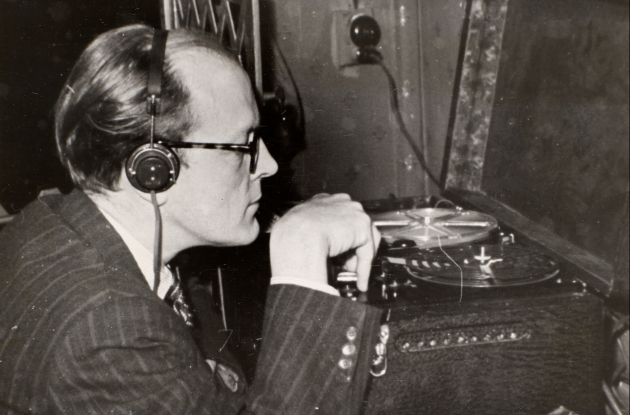Listen to 40 years of Danish theatre recordings
We provide access to thousands of hours of recordings from Copenhagen theatres, so everyone interested can listen to the voices of the greatest actors of the 20th century. Visit us and listen.

Photo: Dagens Nyheder
Published 30 August 2021 | Revision 23 April 2025
It is now possible to hear Dirch Passer's interpretation of Dario Fo's "He Who Steals a Foot is Lucky in Love" (1966) or Liva Weel's voice in Holberg's "The Fidget" (not dated). We have come into possession of theatre enthusiast Knud Hegermann-Lindencrone's (1907-94) recordings from the stages of Copenhagen theatres in the years 1948-1988, where he was given permission by a changing set of directors to set up his recording equipment and thus save the sound of the otherwise elusive dramatic arts.
A total of 1,700 hours of performances from The Royal Danish Theatre and 1,000 hours of performances from private theatres in Copenhagen have been preserved. The recordings are distributed on 3,300 reel tapes.
Excerpts from the collection have previously been published by Udgiverselskabet Hegermann-Lindencrone, but many recordings have not been publicly available until now. If you visit The Black Diamond, you can listen to the recordings in the Research reading room on special computers.
The recordings' road to the library
The road to becoming publicly available started when The Royal Danish Theatre acquired the collection in 1992, and we received a digital audio tape (DAT) copy of the recordings. However, the DAT tape format has a limited shelf life and is therefore unsuitable as an archiving format, so the content was not secured for posterity.
But we have now acquired the original reel-to-reel tapes together with a new digitisation of them from The Royal Danish Theatre. The collection has an extensive registrant, which has been prepared by former archivist at The Royal Danish Theatre, Niels Peder Jørgensen. The registrant is freely available in our library system.
Anna Lawaetz, who is responsible for the Theatre Collection, says: The collection is unique in an international context, because theatre performances only really began to be systematically documented through AV recordings in the 1980s. That we have now received such fine recordings from a period in Danish theatre, which has otherwise primarily been documented in writing or photographs, opens up completely new perspectives in research - both nationally and internationally. The sound of the voices contains a great deal of authenticity. The recordings will be a rich source for mapping, among other things, changing performance practices in Danish theatre.
Read more about the theatre collection and get help finding more material about acting and performing arts in our collections.